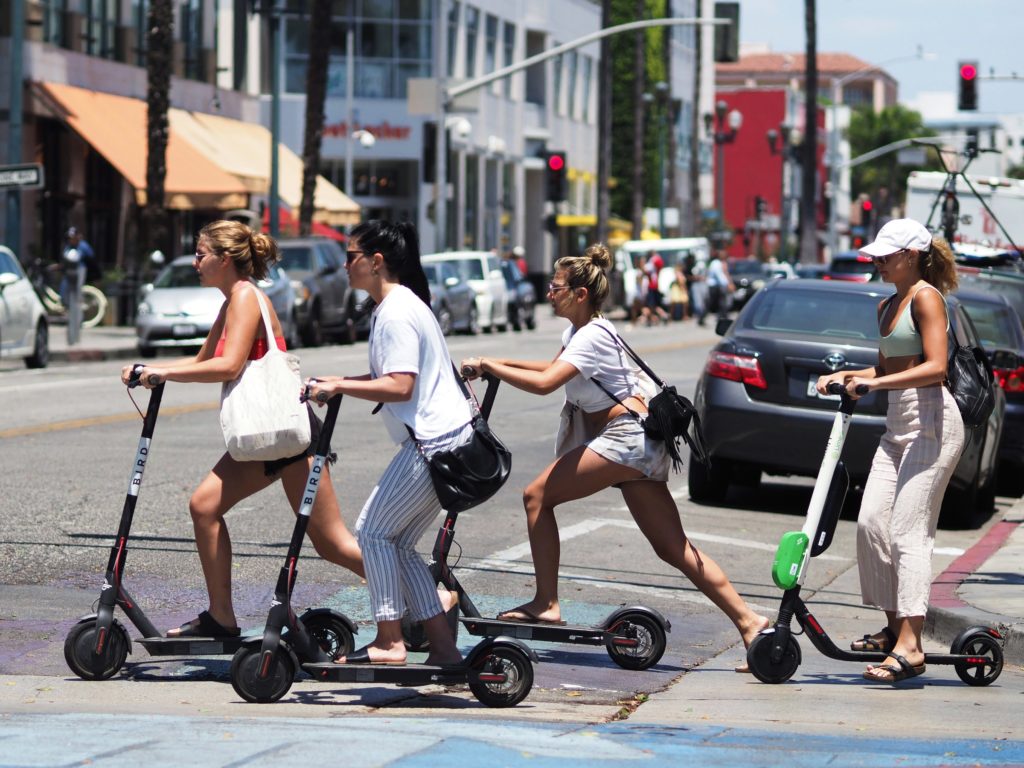Cities, Technology
Should operators share their data with authorities?
6 May, 2019
Since the early development of dockless mobility solutions, staring in 2016 with bikes in China, the question of data usage has been central. As the ridership of these vehicles in exploding, as well as the number of cities were it is available, the need for a clear regulation towards data management and sharing with the cities is stronger than ever.
Why are cities asking for data?
It is all about urban planning. If we look at public bike-share systems, they always had to share the ridership data with their “investors” (the accuracy level being very variable), allowing to adjust the station’s network to the citizens need or to focus on some road segment for implementing bicycle infrastructure.
The introduction of dockless solutions allows having more accurate data, as the possible start and end point are infinite. Accurate date => Accurate analysis => Accurate solutions in terms of micromobility lanes, curb management, preferred parking zones locations…
In addition, getting data from operators would allow cities to have a better vision of private services management. The main argument is to check the vehicle availability in lower-income neighborhoods, but we can also cite compliance with the parking rules or maintenance rules (time allowed to remove/repair a vehicle).
Operators opinion
In September 2018, Los Angeles Department Of Transportation (LADOT) asked operators to share their data using the MDS standard to be eligible to a one year permit. Portland did exactly the same for its 2019 pilot. And the reactions from operators are diverse.
Bird, Lime in LA, or Bolt in Portland, chose to share their data to prove their will to collaborate with cities and secure their permits. As a Bird representative says:
“We look forward to continuing to work with LADOT and other cities on the responsible implementation of mobility management tools and data sharing”
On the other hand, Uber and Lyft have been the main opponents of the LADOT request. Jump’s mother company is not willing to comply with the data sharing request as they are skeptical about the privacy standard met by the MDS:
“We’ve received no assurance that LADOT is willing or able to meet the same standard in protecting the privacy of our customers.”
As a result, both Lyft and Uber only get a one month permit, until they comply with the LADOT data sharing request. Spin, while raising the same concerns as Uber, chose to share its data anyway.
A controversial request
So why is it so controversial? On the same line as Uber, some non-profit organizations such as the Center for Democracy & Technology (CDT) and the Electronic Frontier Foundation (EFF) are campaigning against this measure. Even though the collected data are anonymized, the organizations highlight that it allows to potentially identify individuals, especially when location data is aggregated over time, quoting the case of NYC cabs for which researchers managed to identify license and medallion numbers thanks to the database.
Apart from the data itself, CDT is asking LADOT to work deeper on purpose limitation and access controls, duration of access and retention, security of transmission and storage, and transparency, joining the concerns from operators.

LADOT is communicating on their master data license and protection agreement that any operator has to sign, and reacted to the CDT request by publishing data protection principles. The public authority confirms that the data is categorized as confidential information according to the Information Handling Guidelines, making mandatory to protect it. LADOT assures that it will collect the minimum of data to match its needs, and will aggregate, de-identify, obfuscate, or destroy raw data when possible. The access control is taking into account, as no other government agency or any other third party will access the data. The city will also address security issues by adopting appropriate administrative, physical, and technical safeguards. Finally, it answers the need for transparency by stating that the data will be publicly available and stored for a defined period of time.
Even if the document confirms LADOT awareness of the concerns related to its request for data sharing, some words express a certain lack of preparation and anticipation. For example, the scope and tools for data minimization are yet to be defined, as well as the length of time that data is retained.
The public debate about data is going well beyond e-scooter services. As the CDT states:
“Mobility data is incredibly valuable to public officials and private companies, and the policies around LADOT’s data specification will impact public infrastructure far beyond scooters like autonomous vehicles, drones, and day-to-day city services. “
LADOT management of the scooter pilot data will, therefore, be the first test at such a large scale and will highlight its the benefits and weaknesses.